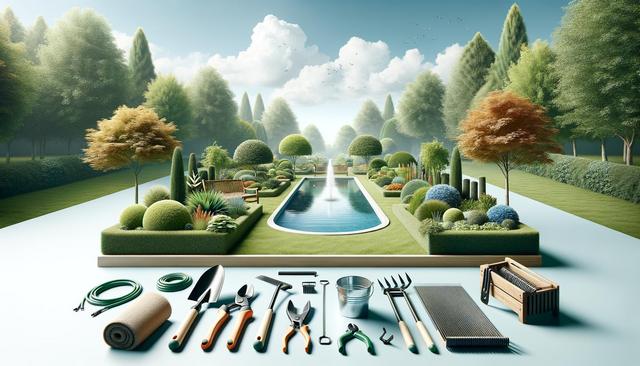Embracing Native Garden Design in New Zealand
One of the most effective ways to create a thriving and resilient outdoor space is by incorporating native garden design in New Zealand. These landscapes are tailored to the local climate, making them more sustainable and easier to maintain. Native plants such as harakeke (flax), pōhutukawa, and koromiko are naturally adapted to the environment and require less water and fewer chemical inputs. By choosing native species, homeowners can support local biodiversity and maintain a connection to the region’s natural heritage.
Beyond ecological benefits, native garden designs also offer aesthetic advantages. With a variety of textures, colors, and forms, these plants can be arranged to create visually appealing spaces that reflect the beauty of the New Zealand landscape. For homeowners and property developers, this approach can be both a practical and meaningful way to enhance their properties.
Low Maintenance Landscaping for Urban Living
For those living in busy areas, low maintenance landscaping in {city} is an attractive solution. These designs focus on reducing upkeep while still delivering a polished and functional outdoor space. Techniques such as using ground cover plants, installing automated irrigation systems, and incorporating hardscaping elements can significantly reduce the time and effort needed for garden maintenance.
Some effective low maintenance features include:
- Mulching to retain moisture and suppress weeds
- Permeable paving for drainage and low upkeep
- Drought-tolerant plant species
By carefully selecting materials and plants that require minimal care, homeowners can enjoy a beautiful outdoor area without the constant need for upkeep. This approach works particularly well for rental properties, commercial spaces, and households with limited time for gardening.
Eco Friendly Backyard Ideas for Sustainable Living
Creating an environmentally conscious garden doesn’t have to be complicated. Eco friendly backyard ideas can range from simple changes to comprehensive overhauls of outdoor space. These ideas aim to reduce environmental impact while enhancing functionality and enjoyment of the garden.
Some popular eco-friendly practices include:
- Installing rainwater harvesting systems
- Using solar-powered garden lighting
- Composting organic waste for soil enrichment
- Incorporating native and drought-tolerant plants
These ideas contribute to sustainable outdoor living in NZ by conserving water, reducing waste, and promoting biodiversity. Even small changes can make a significant difference in the long-term health and sustainability of your garden.
Encouraging Wildlife with Bird-Friendly Landscaping
Another rewarding aspect of landscaping is the opportunity to invite nature into your backyard. Learning how to attract native birds in {city} can add life and movement to your garden while supporting local ecosystems. By offering food, shelter, and nesting opportunities, you can create a sanctuary for birds right outside your door.
Bird-friendly gardens typically include:
- Native shrubs and trees that provide berries and nectar
- Water features like shallow birdbaths
- Dense vegetation for nesting and cover
These elements not only attract birds but also create a peaceful and vibrant space for homeowners to enjoy. Encouraging native wildlife helps maintain ecological balance and fosters a deeper appreciation for the natural world.
Growing Your Own with Edible Garden Solutions
Edible garden solutions are gaining popularity as more people seek to grow their own food at home. From raised beds to vertical gardens, there are numerous ways to incorporate food production into your landscape design. Edible gardens can be both functional and beautiful, adding texture, color, and seasonal interest to your outdoor space.
Common elements of an edible garden include:
- Fruit trees like lemon, feijoa, or apple
- Herb spirals for compact growing
- Vegetable beds with seasonal crops
- Companion planting to improve yields and deter pests
These gardens support sustainable outdoor living in NZ by reducing reliance on store-bought produce and fostering a greater connection to the food we eat. Whether you have a large backyard or a small urban space, edible gardening can be adapted to suit any environment.




Leave a Reply